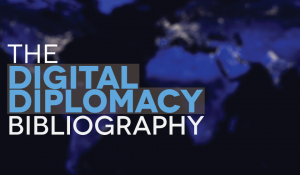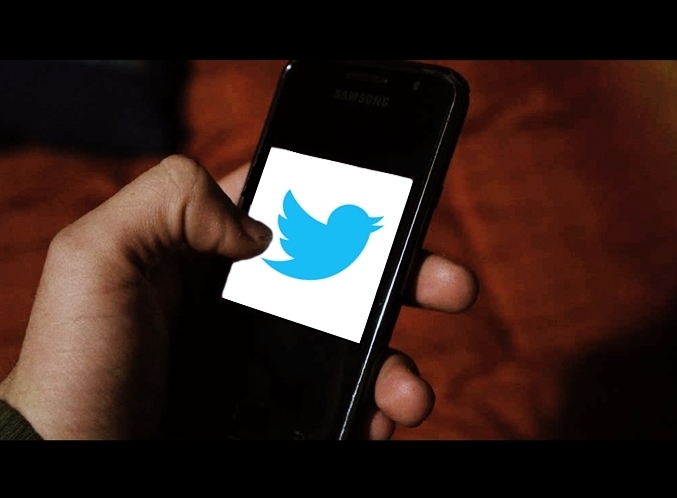The term “soft power” has gained global prominence over the last two decades. A whole series of recent global events seem to show how it is hard, not soft, power that states are turning to to pursue their national interests...
KEEP READINGThumbnail Image:
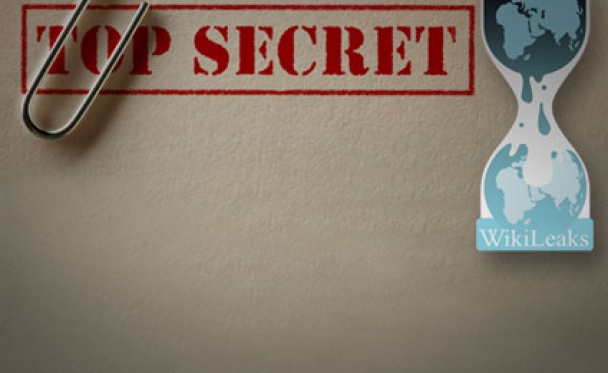
Taking Stock of WikiLeaks and Cablegate: A “Napster Moment” for Government?
Drip, drip, drip…
For analysts of both public and traditional diplomacy and international relations, the gradual release of only about 3,000 of over 250,000 U.S.-origin diplomatic communications is a bit like being subjected to Chinese water torture. Even if the rate of publication is stepped-up somewhat, trying to assess the larger meaning and impact of Cablegate is likely to remain difficult.
One thing, though, is certain - the story is not about to end. Since Cablegate first burst onto the scene about two months ago, it has been with us every day since. Given the relentless pressures of the 24/7 news cycle, this must amount to something of an endurance record. Inevitably, however, the story is beginning to show signs of degeneration into infotainment. Coverage of specific message content is now being displaced by lurid gossip and reports on the endless legal wrangling surrounding the site’s founder.
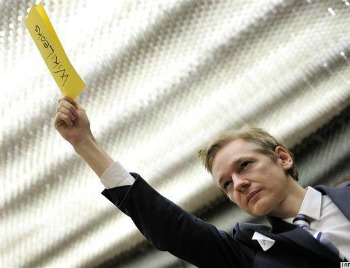
Julian Assange.
The Associated Press, December 2010
The novelty has worn off, audience fatigue is setting in.
This juncture, then, provides an opportunity for some preliminary stocktaking.
Some of the early reactions, for example, seem in retrospect to have been somewhat over the top. As reported in summary on
Waxy, Secretary of State Hillary Clinton told reporters, “It is an attack on the international community, the alliances and partnerships, the conversations and negotiations, that safeguard global security and advance economic prosperity.” NATO condemned the release, saying “it endangers civilians and military personnel… It is illegal, irresponsible and dangerous.” George W. Bush, Senator Joe Lieberman and Rick Santorum described the Wikileaks release as “terrorism.” Mike Huckabee called for Julian Assange’s execution. Sarah Palin wrote on Facebook that Assange is “an anti-American operative with blood on his hands.” Well… To date, despite legitimate concerns over the possible exposure of sensitive sources, there have been no casualties attributable to Cablegate. The international business of governments accumulates quickly and has carried on, as it must, apparently without major hiatus. Diplomacy - that indispensible approach to the management of international relations characterized by dialogue, negotiation and compromise - by all accounts continues.
Given the limited possibilities associated with the remedial use of hard power in the age of globalization, there are very few practical alternatives to diplomacy. This is particularly true in addressing the host of issues which are rooted in science and driven by technology - climate change, pandemic disease, resource scarcity - none of which are amenable to the application of armed force. Indeed, concerns over themilitarization of international policy seem finally to be coming to the fore. Governments really have no choice but to keep talking, and for that reason alone any costs imposed on diplomatic practice are likely to prove temporary.
While this episode may, then, induce a chill, Cablegate has not, as was initially feared, become a diplomatic show-stopper.
So, what is it?
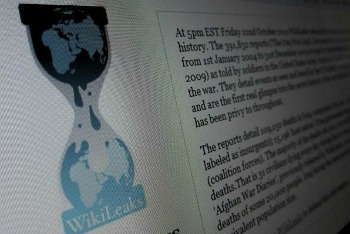
Gary Hershorn/Reuters
Some would characterize the tale in heroic terms, citing it as an example of information freedom, a massive leak generally supportive of the public interest and the people’s right to know. That argument seems to me rather problematic. A quarter of a million messages do not constitute a leak, but instead an undifferentiated deluge, a data dump. Like freedom of speech, moreover, the freedom of information doctrine has some limits, especially when the information gathered was obtained in confidence or relates to legitimate concerns about security.
The case for whistle-blowing, too, seems somewhat shaky. Whistle-blowing refers typically to the exposure of corruption, wrong-doing or criminal behaviour. But probity is not the issue here. Instead, the main motive behind the release of this enormous trove seems to have had more to do with the simple fact that the material was available than with the service of any high public or moral purpose.
In my view, Cablegate represents more than anything else an excellent illustration of the double-edged, paradoxical quality of science and technology. Even as S&T is providing solutions to some of the world’s most vexing challenges - public health, environmental remediation, genomics - it is creating new ones of its own. In this instance, the very technologies which have facilitated modern diplomatic communications have also made possible their unauthorized reproduction and mass dissemination.
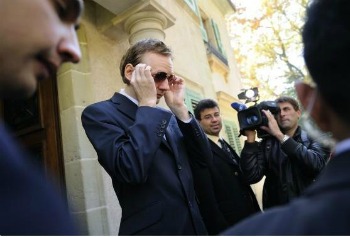
WikiLeaks founder Julian Assange, adjusts his sunglasses as he leaves a press conference in Geneva earlier this month.
FABRICE COFFRINI/AFP/Getty Images.
Like so much else associated with globalization, S&T cuts all ways.
In the vastness of its scale, Cablegate also represents an unprecedented violation of individual privacy and confidentiality. Those who drafted the messages, and those with whom they were speaking, did not expect to read an account of their exchanges on the front page. To the extent that diplomacy is based upon relationships of trust and respect, this subversion of privacy and confidentiality will probably inhibit candid dialogue. Higher levels of classification, more limited distribution, fewer written records, and recourse to other forms of transmission, such as secure telephony, can also be predicted.
None of that is cause for celebration.
There remains as well a public diplomacy angle which has attracted little attention but is nonetheless worth examining. Although none of these messages were ever intended for public consumption, within the USA their publication has in general had a tonic effect on the image and reputation - the brand - of diplomacy per se. Several critics of the State Department have allowed that their estimation of the place has improved. Diplomats are shown as relevant, effective, and working very hard at doing their jobs.
Rarely have members of the public been afforded such insights into what diplomats actually do: making contacts, maintaining networks, and adding unique value by advocating policies, pursuing interests, and providing advice and analysis to policy and decision-makers. For the first time in many years, and even if only fleetingly, interest in diplomacy has migrated from the esoteric margins of public consciousness into something closer to the cultural mainstream.
At home, the world’s second oldest profession may come to be seen in a slightly more sympathetic light as a result.
The impact of these disclosures outside of the USA is more difficult to assess. Some governments and foreign nationals may be offended by the unvarnished assessments and critical commentary contained in the reports. And to be sure, one would not want to see vulnerable sources - for instance, pro-democracy campaigners in China or dissidents in Zimbabwe - compromised or exposed as a result of the revelations.
Over the longer term, there may be some lasting damage to U.S. power and prestige. The end of unipolarity, power shift to the Asia Pacific and the rise of the BRICs, the financial crisis and hollowing out of the domestic economy have already spawned a renewed wave of commentary about American decline.
Viewed as a whole, these cables do not illustrate the seamless inner workings or high-level strategic calculus of an empire at the top of its game. Instead, readers are offered the chronicles of something akin toimperial retreat - snapshots of defensive, rearguard actions and generalized geopolitical disarray. Given the magnitude of the recession still besetting the USA, for example, one might have expected to see intensive coverage of the various national responses to the global financial crisis. Economic reporting, however, has been notable mainly for its absence.
That is surprising, and suggests the kind of drift - a lack of priorities and direction - which historians associate with the demise of great powers.
By virtue of its very occurrence, is this, then, a “Napster moment” for the state, a game-changer from which there is no turning back?
Quite possibly.
But again, these are early days yet.
Wikileaks Around the World
At the end of November 2010, the world did a diplomatic double-take when WikiLeaks, a not-for-profit media organization released confidential U.S. diplomatic cables. Since Cablegate broke into the global media, the USC Center on Public Diplomacy has aggregated both domestic and international coverage of the released cables. The PDiN Monitor spotlight on “WikiLeaks Around the World” serves as a small report on the impact of WikiLeaks on a regional basis. CPD’s Media Monitor, “WikiLeaks: America’s Cablegate” will continue to aggregate the continued coverage and impact of the released cables and provide a second report on the public diplomacy impact of the cables when the coverage comes to a close.
Africa
The most salient piece of information obtained from WikiLeaks was the exposure of the collaboration between Zimbabwean opposition leader, Morgan Tsvangirai, and his political party, Movement for Democratic Change (MDC), and a few Western states. Tsvangirai and the MDC are considered Zimbabwe’s greatest hopes for unseating dictator, Robert Mugabe, and bringing democratic reforms to the country. In 2009 Tsvangirai met with representatives from the United States, United Kingdom, the Netherlands and the European Union to discuss sanctions that had been imposed on Zimbabwe by certain Western nations. Tsvangirai said that Mugabe had been slow to enact political reform and that the sanctions should remain in place to force Mugabe to give up political power. While Tsvangirai publicly condemned the sanctions, he privately agreed with them. He recognized that if his political adversaries learned that he supported the unpopular measures, the information would be a powerful weapon to attack and discredit him. The U.S. embassy in Zimbabwe sent this information in a confidential cable which was subsequently released in WikiLeaks. This led Zimbabwe’s attorney general, appointed by Robert Mugabe, to declare that Tsvangirai would be investigated for treason which presented a major setback for democracy in the African nation.
A series of leaked cables included references to Kenya as a “swamp” of corruption. This characterization, a spokesman from the Kenyan government described as “malicious”, if true. A headline of the country’s Daily Nation stated that “U.S. Envoys see Kenya as a “swamp of graft”, citing the German magazine, Der Spiegel as the source of the information.
While candid and unflattering descriptions of African leaders were common throughout the leaked cables, analysts do not believe that the leaks will cause permanent damage to the U.S.-African diplomatic relationship.
Americas
In the immediate aftermath of WikiLeaks’ release of U.S. diplomatic cables, U.S. domestic public opinion was highly critical of the manner in which the confidential documents were exposed. According to aWashington Post-ABC News poll, many Americans supported the arrest of WikiLeaks founder Julian Assange, and an interesting convergence across party lines resulted from the leaks as Democrats, Republican and Independents shared the common perception that the release of the cables is harmful to U.S. interests and jeopardizes the future of U.S. diplomatic efforts around the world for the longterm.
Little attention was paid in WikiLeaks to the “less restive, less threatening locales” in Latin America. However, cables did reveal U.S. attempts to tighten control over Latin American affairs by leading efforts to isolate Venezuelan President, Hugo Chavez. Other cables demonstrated the lack of faith the U.S. has in the Mexican army’s ability to fight the country’s drug cartels. An important insight from the cables is that while the U.S. influence in Latin America may be decreasing, several countries still rely heavily on U.S. intelligence and military assistance.
Asia Pacific
The most significant insight to emerge from WikiLeaks related to the Asia Pacific region was China’s view of North Korea. Some analystsargued that the released documents may serve to open North Korea’s eyes to the harsh reality that it no longer has the backing of China, to which it has become accustomed. The cables reveal that the DPRK may in fact be the most isolated country in the world, now that China has shifted its policies toward it in light of the DPRK’s recent acts of aggression. While China’s view of North Korea reflected positively on it in the West, some damaging cables revealed that Chinese leaders ordered cyber attacks on Google and U.S. government computers.
Other released documents included unflattering remarks from Singaporean diplomats about Myanmar, North Korea, Malaysia, and India. Singapore’s Foreign Affairs Minister, George Yeo, explained that the leaks have caused Singaporean officials to be more cautious and guarded in their communications with U.S. diplomats, a consequence feared by many U.S. government officials.
Europe
The New York Times reported that many Europeans felt that the United States’ reaction to WikiLeaks was excessively fierce and demonstrated arrogance and hypocrisy given the U.S. commitment to secrecy in the post-9/11 era. American officials and politicians were criticized in various European publications for describing the leaks as an act of “terrorism” and “an attack against the international community”. This response and the U.S. demands to shut down WikiLeaks was cast as hypocritical after Secretary of State Hillary Clinton’s major speech about internet freedom barely one year ago.
A specific European issue that received much attention in diplomatic cables was the 2008 war between Georgia and Russia. The cables, written by the U.S. ambassador to Georgia, played directly into the Georgian account of events as a measure of self-defense from Russian aggression, confirming Tbilisi’s version of the war. This was seen as an example of “going native”, when diplomats serving abroad begin to see problems through the prism of local society.
Middle East
Following the release of the diplomatic cables, Secretary of State Hillary Clinton embarked on an “apology tour” throughout the Middle East in order to mitigate any damage done and to reassure U.S. allies.
The cables revealed a distrust of Iran and its nuclear ambitions on the part of many Arab states and demonstrated that U.S. partners in the Middle East would support a forceful, perhaps even military, response against Iran’s nuclear aspirations. Nevertheless, a number of regional leaders remain mindful of the permanence of Iranian power and the “costs of antagonizing it”. While there is still no united Arab front against Iran, confirmation of such discussions and points of view is significant.
The silence of Jordanian media in response to the WikiLeaks release was another major story especially since the U.S. embassy in Jordan was one of the top sources of the cables regarding Jordanian officials’ positions on Iran and the Middle East peace process. While Jordanian officials were largely quoted in the international media, the local media initiated a “self-imposed embargo” on the story, simply stating the official government position on the situation without analysis or commentary.
South Asia
India’s foreign secretary, Nirupama Rao, spoke out in defense of the confidentiality principle of democratic communication and criticized WikiLeaks for publishing the diplomatic cables. Released cables revealed the U.S. plan to promote anti-extremism throughout the world, as well as peace in Afghanistan, through the use of Bollywood, India’s top cultural export. Bollywood films with their growing global appeal are recognized as the “fulcrum” of India’s soft power.
As part of broader attempts to downplay the significance of the diplomatic cables, Pakistani Prime Minister Yousaf Raza Gilanidis counted the leaks as being “the observation of junior diplomats”. The cables exposed a lack of transparency in Pakistan between what Pakistani officials convey to U.S. representatives in private and what is communicated to the Pakistani public. The country’s anti-Western Urdu-language press saw conspiracy theories behind the leaked cables and described it as propaganda against Muslim countries. Another revelation that emerged from the cables was concern on the part of U.S. officials about a stockpile of highly enriched uranium in an “aging nuclear reactor” in Pakistan, enough to build several “dirty bombs” or even an actual nuclear bomb if placed in skilled hands. The information in the leaked cables and the fact that Pakistani media even published false cables demonstrate the complexity of the relationship between the United States and Pakistan.
Author Biography
Daryl Copeland is a Canadian analyst, author and educator who writes and speaks on international policy, global issues, diplomacy and public management. He is Adjunct Professor of International Studies and a Senior Fellow at the University of Toronto’s Munk Centre, and in 2009 was appointed as a Research Fellow at the University of Southern California’s Center on Public Diplomacy. Mr. Copeland grew up in Toronto and received his formal education at Jarvis C.I., the University of Western Ontario, where he won the Chancellor’s Prize (social sciences) Gold Medal (political science), and the Norman Paterson School of International Affairs at Carleton University, where he was awarded the Canada Council Special MA Scholarship. His informal learning, life skills and world-view have been nurtured over the course of years spent backpacking through six continents. He has experience and expertise in diplomacy, foreign ministries and careers in the foreign service, international and non-governmental organizations. Further information on Daryl Copeland and his thinking on diplomacy, development and security in the age of globalization are available at:www.guerrilladiplomacy.com









